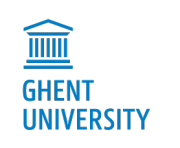General information
Program
09.00-10.30 – Microbiomes – general introduction
In this general introductory part we will present a state-of-the-art overview of recent insights into what microbiomes are, why they play a pivotal role in the functioning of natural and anthropogenic ecosystems, and why microbiome research is important and relevant for biodiversity, ecosystem & Blue Growth research.
10.30-10.45 – Coffee break
10.45-13.00 – Microbiome methodologies - from high-throughput cultivation to the omics
An overview will be given of the modern tool box that is available for studying the diversity and functionality of microbiomes, with emphasis on high-throughput cultivation and strain preservation and characterization methods (e.g. MALDI-TOF MS), genome sequencing, amplicon and marker gene sequencing, metagenomics, metatranscriptomics, metabolomics and DNA- and RNA-stable isotope probing.
13.00-14.00 – Lunch
14.00-15.30 – Microbiome methodologies: demo’s and case studies
Analytical approaches for organizing, processing and analyzing omics data will be demonstrated. Case studies of microbiome research carried out in the organizing labs will be presented to give a taste of the potential of microbiome research in fundamental and applied research.
15.30-15.45 – Coffee break
15.45-17.00 - Microbiome methodologies: demo’s and case studies (cont’d)
Content
The highlighted icons, represent the fields of education (in compliance with ISCED Classification) engaged during this course/programme.
Venue
Gent, Belgium
Application
Click here to apply: http://marinetraining.eu/node/51030/register
Cost:
<p>€150</p>
Grant Opportunities:
If you're a PhD student, contact us for grant opportunities
Program
09.00-10.30 – Microbiomes – general introduction
In this general introductory part we will present a state-of-the-art overview of recent insights into what microbiomes are, why they play a pivotal role in the functioning of natural and anthropogenic ecosystems, and why microbiome research is important and relevant for biodiversity, ecosystem & Blue Growth research.
10.30-10.45 – Coffee break
10.45-13.00 – Microbiome methodologies - from high-throughput cultivation to the omics
An overview will be given of the modern tool box that is available for studying the diversity and functionality of microbiomes, with emphasis on high-throughput cultivation and strain preservation and characterization methods (e.g. MALDI-TOF MS), genome sequencing, amplicon and marker gene sequencing, metagenomics, metatranscriptomics, metabolomics and DNA- and RNA-stable isotope probing.
13.00-14.00 – Lunch
14.00-15.30 – Microbiome methodologies: demo’s and case studies
Analytical approaches for organizing, processing and analyzing omics data will be demonstrated. Case studies of microbiome research carried out in the organizing labs will be presented to give a taste of the potential of microbiome research in fundamental and applied research.
15.30-15.45 – Coffee break
15.45-17.00 - Microbiome methodologies: demo’s and case studies (cont’d)

 Universiteit Gent (Ghent University)
Universiteit Gent (Ghent University)

